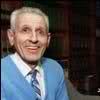- Welcome to Cook'd and Bomb'd.
-
 Is this shit?
by Cold Meat Platter
Is this shit?
by Cold Meat Platter
[Today at 01:55:29 AM] -
 The Travails of Labour - The...
by Blumf
The Travails of Labour - The...
by Blumf
[Today at 01:53:23 AM] -
 Load of horses gone mental...
by Kankurette
Load of horses gone mental...
by Kankurette
[Today at 01:44:56 AM] -
 Terrible music teachers
by Kankurette
Terrible music teachers
by Kankurette
[Today at 01:44:16 AM] -
 Threelon Musk: pl3ase lik3...
by Cold Meat Platter
Threelon Musk: pl3ase lik3...
by Cold Meat Platter
[Today at 01:43:06 AM] -
 Football Thread 23-24: Part...
by Kankurette
Football Thread 23-24: Part...
by Kankurette
[Today at 01:40:25 AM] -
 Talking Pictures
by kaprisky
Talking Pictures
by kaprisky
[Today at 01:37:28 AM] -
 Jimmy Carr's new Netflix special....
by Sad Ken
Jimmy Carr's new Netflix special....
by Sad Ken
[Today at 01:36:07 AM] -
 The Last CaB post that made...
by famethrowa
The Last CaB post that made...
by famethrowa
[Today at 01:02:48 AM] -
 What makes Jack Nicholson...
by buzby
What makes Jack Nicholson...
by buzby
[Today at 01:01:39 AM]
Members
 Total Members: 17,827
Total Members: 17,827 Latest: skinnylike
Latest: skinnylike
Stats
 Total Posts: 5,583,350
Total Posts: 5,583,350 Total Topics: 106,740
Total Topics: 106,740 Online Today: 811
Online Today: 811 Online Ever: 3,311
Online Ever: 3,311- (July 08, 2021, 03:14:41 AM)
Users Online
 Users: 41
Users: 41 Guests: 665
Guests: 665 Total: 706
Total: 706 This isnt witty sorry
This isnt witty sorry Nooses Give
Nooses Give Cold Meat Platter
Cold Meat Platter Bingo Fury
Bingo Fury frajer
frajer Mortimer
Mortimer Memorex MP3
Memorex MP3 Blumf
Blumf Gizmo
Gizmo benjitz
benjitz KaraokeDragon
KaraokeDragon non capisco
non capisco Urinal Cake
Urinal Cake Jimmy the Harp
Jimmy the Harp klaatu!
klaatu! sarahzxcv
sarahzxcv H-O-W-L
H-O-W-L Poobum
Poobum DelurkedToHelp
DelurkedToHelp Oosp
Oosp Sad Ken
Sad Ken Mirr0rs
Mirr0rs privatefriend
privatefriend Theoretical Dentist
Theoretical Dentist Crunk
Crunk Sonny_Jim
Sonny_Jim Kankurette
Kankurette Midas
Midas Harry Badger
Harry Badger beanheadmcginty
beanheadmcginty Mrgeebus
Mrgeebus FredNurke
FredNurke JesusAndYourBush
JesusAndYourBush chocky909
chocky909Independent article on comedians as directors (mentions Four Lions)
Started by Neil, April 02, 2010, 06:54:14 PM
Previous topic - Next topic
User actions

